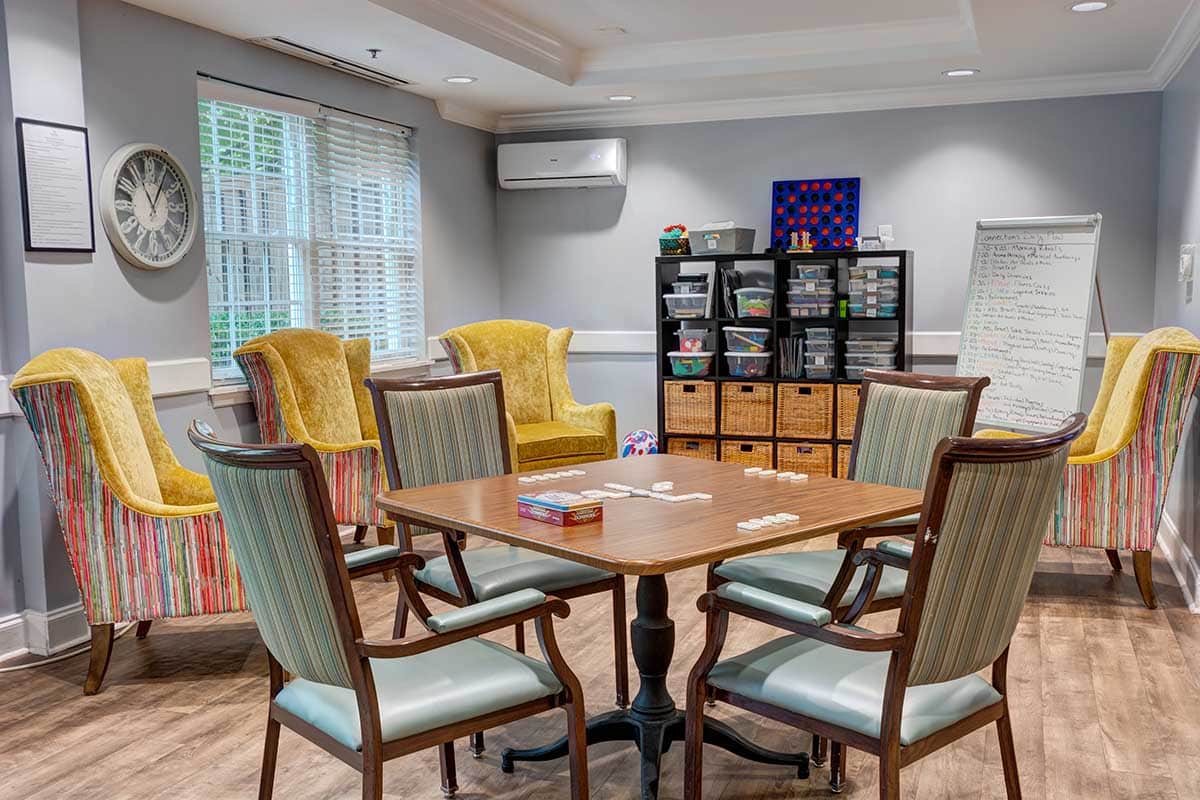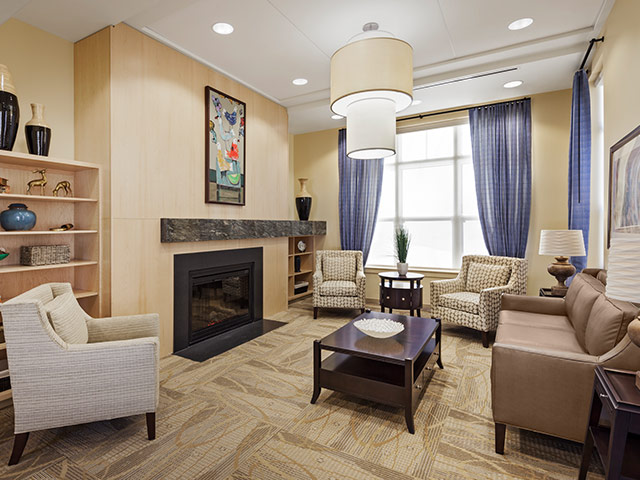Boutique Memory Care Communities That Offer a Homelike Atmosphere
Everything About Memory Care Solutions: Why Tiny Memory Treatment Residences Are a Wonderful Choice
Memory care services play a crucial role in supporting individuals with Alzheimer's and dementia. Tiny memory care homes stick out for their tailored approach and intimate setting. With lower staff-to-resident ratios, these homes promote more powerful connections and tailored care. Citizens take advantage of boosted social interactions and a secure atmosphere. As households discover options, recognizing the unique benefits of tiny memory care homes becomes vital. What factors should be taken into consideration when choosing the appropriate home?
Recognizing Memory Treatment Services
While numerous might know with basic elderly care choices, comprehending memory treatment solutions is crucial for households dealing with the challenges of cognitive decline. Memory treatment particularly caters to individuals with conditions such as Alzheimer's condition and other types of mental deterioration. These services provide a structured environment that focuses on improving the high quality of life for locals via specialized care and support.Memory treatment centers are developed to guarantee safety and security and safety, frequently featuring secured atmospheres to avoid wandering. Trained team member are offered around the clock to help with day-to-day tasks, medicine management, and individual care. In addition, memory care programs usually include cognitive excitement tasks, tailored to engage homeowners and advertise psychological health. Family members can benefit from comprehending these services, as they enable educated decisions regarding their liked ones' care, making certain that their particular needs and choices are attended to in a encouraging and thoughtful way.
The Advantages of Little Memory Care Residences
Little memory treatment homes provide unique benefits that can substantially boost the top quality of life for homeowners with cognitive disabilities. One considerable benefit is the intimate environment, which permits individualized communications among staff and residents. This smaller sized setting promotes meaningful connections, reducing sensations of isolation and anxiety frequently experienced by individuals with memory issues.Additionally, the reduced staff-to-resident proportion in small memory treatment homes makes it possible for caregivers to offer even more alert supervision and support. This approach not just improves security yet additionally promotes a complacency for the residents.Moreover, tiny memory care homes can adapt quickly to the unique needs and choices of each homeowner, permitting for an extra homelike ambience. Such a setting can encourage social interaction and participation in tasks, ultimately enhancing the daily experiences of those living with cognitive problems.
Personalized Treatment Plans for Citizens
Customized treatment strategies are important in memory treatment homes, as they deal with the one-of-a-kind demands and choices of each local. These strategies start with comprehensive evaluations performed by competent experts, who examine cognitive abilities, case history, and individual passions. This tailored strategy assurances that care is not only reliable but also considerate of each individual's self-respect and autonomy.Moreover, customized care strategies are adaptable, enabling adjustments as locals' needs progress in time. This flexibility promotes a sense of security and knowledge, which is essential for individuals living with memory obstacles. Caregivers are trained to implement these plans regularly, offering assistance that straightens with the residents' regimens and preferences.Ultimately, personalized treatment strategies boost the lifestyle for citizens by promoting well-being, independence, and engagement, making them a basic facet of memory care services in little memory care homes.
Producing a Home-Like Environment
Developing a home-like environment is vital for cultivating convenience and familiarity in memory treatment setups, as it greatly affects citizens' emotional wellness. Small memory treatment homes often focus on tailored touches, such as warm shade schemes, family photos, and acquainted furniture plans, which aid locals really feel much more comfortable. Including aspects evocative a conventional home, like comfortable space and common areas, motivates a sense of belonging.Moreover, utilizing natural light and outside spaces can boost the atmosphere, advertising relaxation and serenity. Team member play a considerable function in keeping this atmosphere by engaging with residents in a caring way, treating them like family. Routine tasks, such as food preparation or gardening, can likewise add to a home-like feeling, providing opportunities for citizens to join meaningful experiences. Generally, producing a supporting environment supports cognitive feature and emotional security, making it a vital aspect of memory care solutions.
Improved Social Communication and Neighborhood
Boosted social interaction and community are essential components of memory treatment services. By cultivating personalized social engagement and producing a family-like atmosphere, these solutions advertise significant links among residents. Team activities and events even more encourage involvement, helping people feel much more consisted of and sustained.
Personalized Social Involvement
While social interaction is necessary for total well-being, lots of individuals with memory problems often have a hard time to involve meaningfully with others. Individualized social engagement in memory care homes addresses this obstacle by creating tailored tasks that satisfy citizens' unique interests and capabilities. By concentrating on private preferences, caregivers can foster links that resonate deeply with everyone. Tasks such as art therapy, music sessions, and assisted conversations promote cognitive excitement and psychological expression. Furthermore, small group settings motivate friendship and enable for more intimate communications, improving feelings of belonging. This technique not just deals with feelings of isolation however additionally equips homeowners to keep a sense of identification, inevitably adding to enhanced psychological health and wellness and quality of life.
Family-like Ambience
In a memory care content setup, fostering a family-like ambience greatly boosts social communication and develops a feeling of community among residents. Smaller memory care homes often prioritize intimate settings, enabling homeowners to create closer links with one another and personnel. This nurturing ambience advertises count on, which is essential for individuals with memory problems. Residents are more most likely to involve in discussions and share experiences, creating a helpful network that reduces sensations of solitude. The experience of common spaces and regimens adds to a sense of belonging, further urging social interaction (personalized memory care). In such setups, psychological bonds thrive, resulting in boosted general health and a better of life for locals as they navigate their everyday experiences together
Team Activities and Occasions

Safety And Security and Protection Features in Little Houses
Lots of tiny homes created for memory care include necessary security and protection features to guarantee the well-being of homeowners. These homes typically make use of safe and secure entry and leave factors to prevent wandering, an usual concern amongst individuals with memory disabilities. Furthermore, security systems and alarm devices improve tracking, making certain that personnel can immediately respond to any uncommon activities.Interior designs are tailored for security, with decreased dangers such as clutter-free paths and sharp edges. Handrails and non-slip floor covering are normally installed to lower the threat of falls. Personnel are trained in emergency situation procedures, guaranteeing they are planned for different situations.Moreover, individualized care plans may consist of assessment of specific safety and security demands, providing customized solutions for every citizen. Overall, these safety and protection functions create a nurturing setting where residents can grow while keeping their self-respect and independence.
Just how to Pick the Right Memory Treatment Home
Just how can family members ensure they pick one of the most ideal memory care home for their loved ones? The choice calls for mindful factor to consider of a number of variables. Families must evaluate the center's team certifications and training, making sure that caregivers are experienced in handling memory-related conditions. Next off, it's crucial to analyze the home's atmosphere, concentrating on safety functions and whether it fosters a sense of neighborhood and belonging. Checking out the facility can provide insight into daily tasks and the social environment, which are important for psychological stimulation and emotional health. Furthermore, families must ask about the care plans provided, guaranteeing they are customized to private right here demands. Lastly, taking into consideration the home's location and availability for family sees can add to a smoother shift. By resolving these facets, family members can make an educated decision that prioritizes their liked one's convenience and lifestyle in a memory treatment setup.
Regularly Asked Concerns
What Credentials Should Staff Members in Memory Care Houses Have?
Team member in memory treatment homes need to possess appropriate certifications, experience in mental deterioration treatment, strong communication abilities, and concern. Continuous training in behavior monitoring and therapeutic you can check here treatments enhances their capacity to sustain citizens effectively.
How Do Memory Treatment Services Differ From Conventional Assisted Living?
Memory care solutions concentrate specifically on individuals with memory problems, supplying specialized assistance and organized settings. On the other hand, standard assisted living supplies general help with everyday activities, lacking the customized approach necessary for those with cognitive challenges.
What Kinds of Activities Are Used in Memory Care Residences?
Memory care homes generally supply a range of activities made to engage citizens. Usual alternatives include art therapy, songs sessions, cognitive games, workouts, gardening, and social events, all focused on improving well-being and cognitive function.
Can Residents Bring Their Own Possessions to Memory Care Residences?
Residents can usually bring their very own belongings to memory care homes, allowing them to individualize their space - personalized memory care. This practice aids develop an acquainted environment, advertising comfort and a sense of identity for the people

How Are Member Of The Family Associated With the Care Process?
Member of the family play a vital function in the treatment procedure, often joining decision-making, attending treatment meetings, and giving emotional assistance. Their participation fosters a collaborative setting, improving the local's total wellness and lifestyle. While numerous might be acquainted with general elderly care alternatives, recognizing memory treatment solutions is necessary for family members facing the difficulties of cognitive decline. These solutions offer an organized atmosphere that concentrates on improving the quality of life for residents via specialized treatment and support.Memory care facilities are made to ensure safety and security and protection, typically including secured settings to protect against roaming. Personalized treatment plans are vital in memory care homes, as they provide to the distinct requirements and choices of each resident. Staff participants in memory treatment homes must have relevant qualifications, experience in dementia treatment, strong communication abilities, and compassion. Memory care solutions concentrate particularly on individuals with memory problems, offering customized assistance and organized atmospheres.